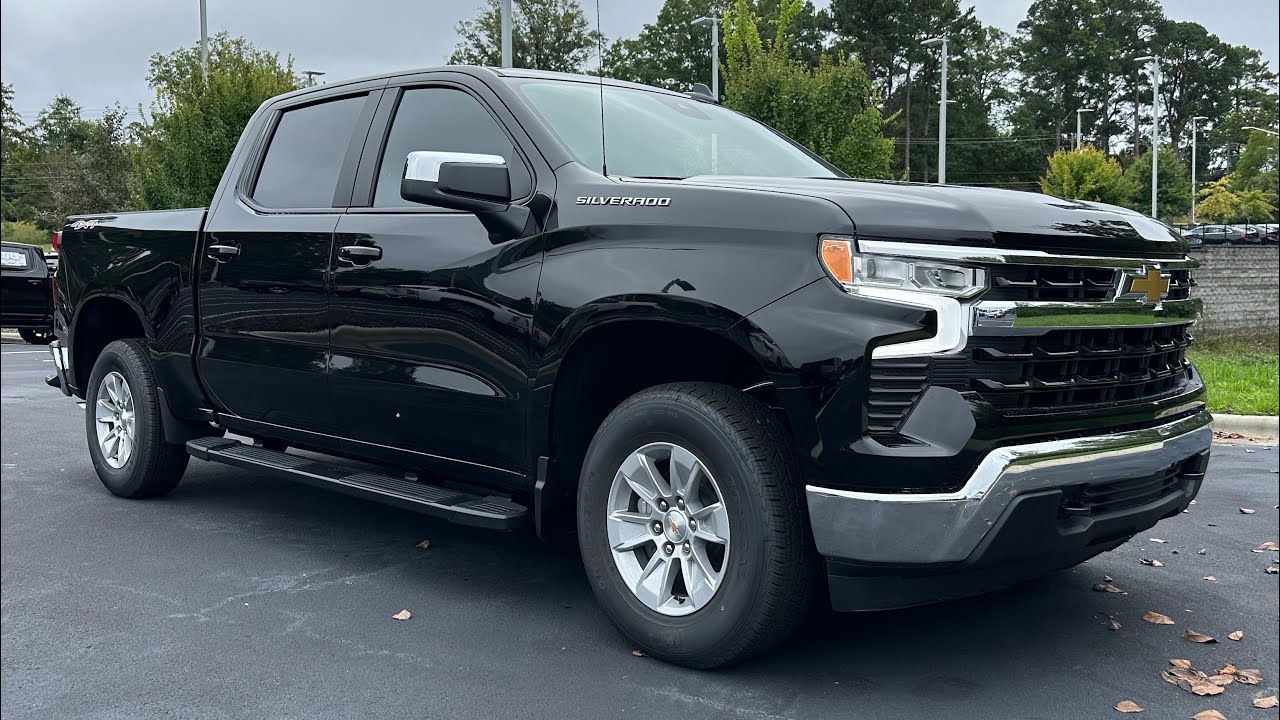Pickup trucks have long been the backbone of rural communities, serving as reliable workhorses on farms, ranches, construction sites, and rough terrain.
In these markets, durability, capability, and resale value carry extra weight, as owners need vehicles that can endure hard use and still retain their worth over time.
However, not all pickups are created equal when it comes to holding value in rural areas. Some models become prized assets that maintain strong resale prices due to their reputation for toughness and reliability, while others depreciate rapidly, making them less desirable in these demanding environments.
This article explores two contrasting groups of pickup trucks: those that consistently hold value in rural markets and those that struggle to keep their worth under the same conditions.
Understanding what makes a pickup truck resilient in rural resale markets is vital for buyers who rely on their vehicles for heavy-duty tasks or those looking to make smart investments. Factors like mechanical reliability, parts availability, off-road capability, and brand trust all influence value retention.
By identifying the top five pickups that hold value and the five that don’t, this guide will help rural buyers make informed decisions and avoid costly depreciation pitfalls.
Also Read: 5 Cars That Sound Cheap But Last Forever and 5 That Sound Fancy But Fail
5 Pickup Trucks That Hold Value In Rural Markets
In rural markets, pickup trucks are more than just vehicles—they are essential tools that power daily life and work. Whether hauling feed, towing trailers, or navigating rough terrain, these trucks must be durable, reliable, and easy to maintain.
Because of their critical role, pickups that prove themselves in these demanding conditions often retain their value remarkably well, even as mileage climbs. Buyers in rural areas prioritize trucks with proven toughness, strong mechanical components, and the ability to handle heavy workloads without frequent breakdowns.
As a result, trucks that combine rugged capability with long-term reliability tend to dominate resale markets in these regions.
Value retention in rural markets is influenced by several key factors. First, mechanical reliability plays a major role; trucks known for engines and transmissions that last hundreds of thousands of miles attract loyal buyers.
Second, parts availability and serviceability ensure that repairs remain manageable and affordable. Third, off-road and towing capabilities are critical, as many rural jobs demand traversing unpaved roads and hauling heavy loads.
Finally, brand reputation and a history of toughness matter greatly, as rural buyers often stick to tried-and-true models they trust.
This section highlights five pickup trucks that excel in these areas and therefore hold value better than most in rural markets.
From legendary durability to versatile configurations and solid after-sales support, these pickups continue to meet the high standards rural buyers require.
Each truck here represents a smart choice for those seeking dependable work vehicles with strong resale prospects, offering insights into why they consistently outperform competitors in rural resale value.
1. Toyota Tacoma
The Toyota Tacoma stands out as one of the most dependable and durable midsize pickup trucks available, making it a favorite in rural markets nationwide.
Its reputation for longevity and reliability dates back decades, with many owners reporting Tacomas that have surpassed 300,000 miles with minimal major repairs. This proven mechanical resilience is a critical reason why the Tacoma holds value so well.
The Tacoma’s drivetrain, including its robust 4-cylinder and V6 engine options, is engineered to endure harsh working conditions while maintaining efficiency.
The truck’s rugged chassis and suspension are designed for off-road use, which appeals directly to rural buyers who frequently navigate rough terrain.
Furthermore, Toyota’s extensive dealer network and widespread parts availability reduce downtime and repair costs, an important consideration for rural users.
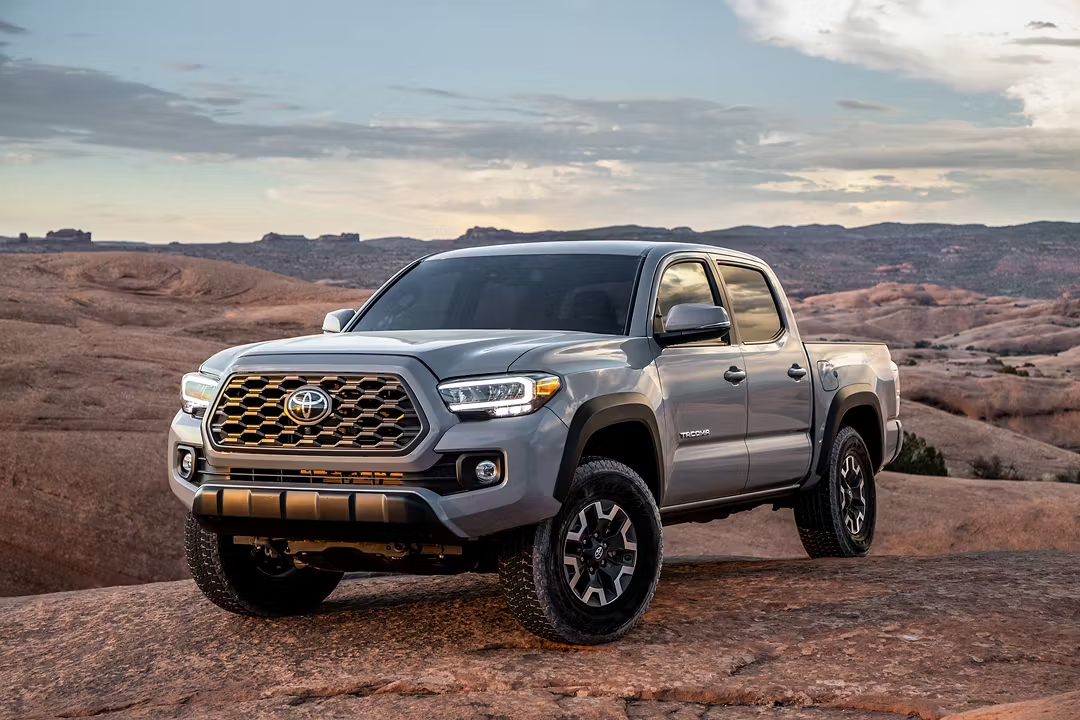
Another factor behind the Tacoma’s value retention is its versatility. Available in both two-wheel and four-wheel drive configurations, with various bed lengths and cab styles, the Tacoma suits a broad range of rural needs—from farming chores to weekend outdoor adventures.
The truck’s balance of size and capability makes it ideal for rural environments where maneuverability and hauling power are both essential.
Lastly, the Toyota brand’s reputation for quality and longevity contributes significantly to the Tacoma’s desirability in rural resale markets.
Buyers know they are investing in a pickup with a proven track record of reliability, which keeps demand high and depreciation comparatively low. For anyone in rural areas seeking a durable, capable, and value-retentive midsize truck, the Toyota Tacoma remains a top choice.
2. Ford F-150
The Ford F-150 has long been the gold standard among full-size pickup trucks, especially in rural markets where ruggedness and capability are non-negotiable. Its legendary durability and versatility make it a top contender for holding value in these demanding environments.
One of the F-150’s key strengths is its wide range of engine options, including fuel-efficient V6s, powerful V8s, and even a hybrid variant, allowing buyers to tailor the truck to their specific needs.
This flexibility means rural users can choose the right balance between towing power, payload capacity, and fuel economy.
The F-150’s proven powertrains are renowned for lasting hundreds of thousands of miles with proper maintenance, which builds confidence among buyers in rural areas who expect their trucks to perform under heavy workloads.
Ford’s extensive dealer and service network ensures parts and repairs are readily available across even the most remote areas, a critical factor for rural customers who cannot afford long downtimes.
The F-150’s rugged frame and suspension are designed to handle tough terrains and heavy-duty tasks, making it a reliable workhorse on farms, ranches, and construction sites.
The truck’s impressive towing and payload ratings also appeal to rural buyers who frequently haul trailers, equipment, and livestock.
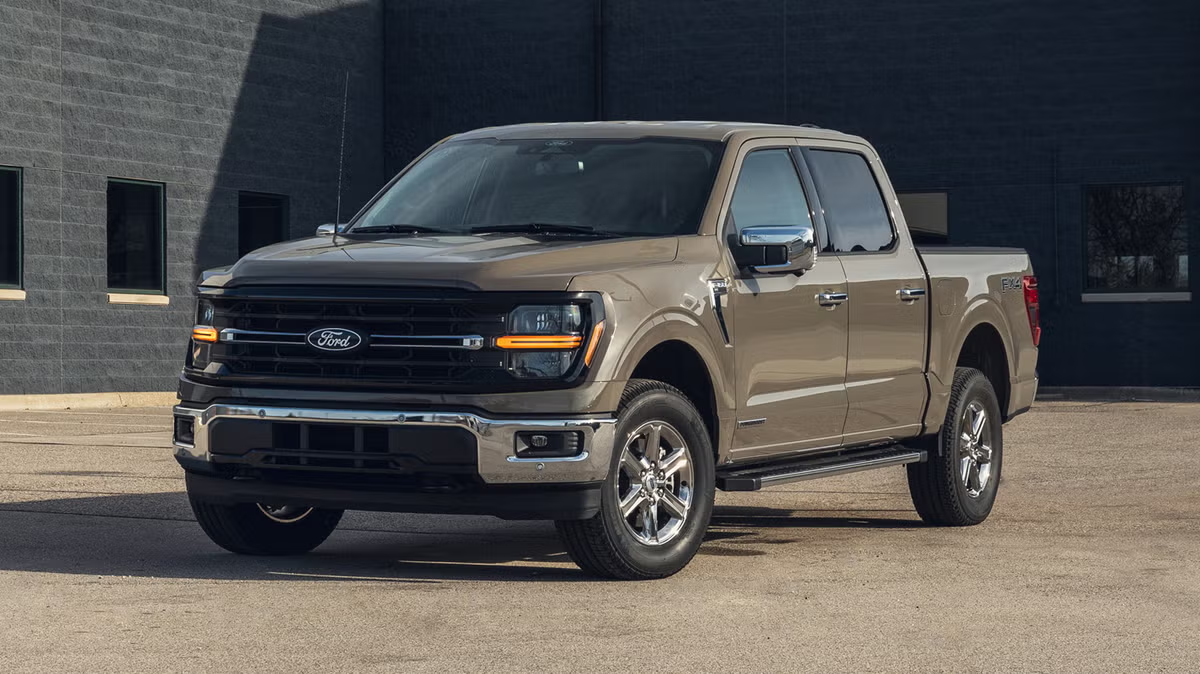
Moreover, Ford has consistently updated the F-150 with modern features like advanced driver assistance systems and connectivity options, which enhance safety and convenience without compromising durability.
Brand loyalty also plays a significant role in the F-150’s strong resale value. Many rural buyers stick with Ford due to the truck’s proven track record and familiarity, helping maintain demand in the used market.
Overall, the Ford F-150’s combination of durability, versatility, and widespread support make it one of the best pickup trucks for holding value in rural markets.
3. Chevrolet Silverado 1500
The Chevrolet Silverado 1500 is a mainstay in rural communities, valued for its balance of power, durability, and affordability. This full-size pickup truck consistently holds its value well in rural markets due to its robust engineering and strong brand presence.
One of the Silverado’s main appeals is its range of powerful engine options, including V6 and V8 choices, which provide excellent towing and hauling capabilities.
These engines are designed for longevity, with many owners reporting high mileage without major mechanical failures. This reliability is crucial in rural areas where the truck is expected to perform demanding tasks daily.
The Silverado’s sturdy body-on-frame construction ensures it can endure rough terrain and heavy loads, making it a dependable companion for farmers, ranchers, and tradespeople. Its suspension system is tuned to handle off-road conditions, which is often a necessity in rural environments with unpaved roads and uneven surfaces.
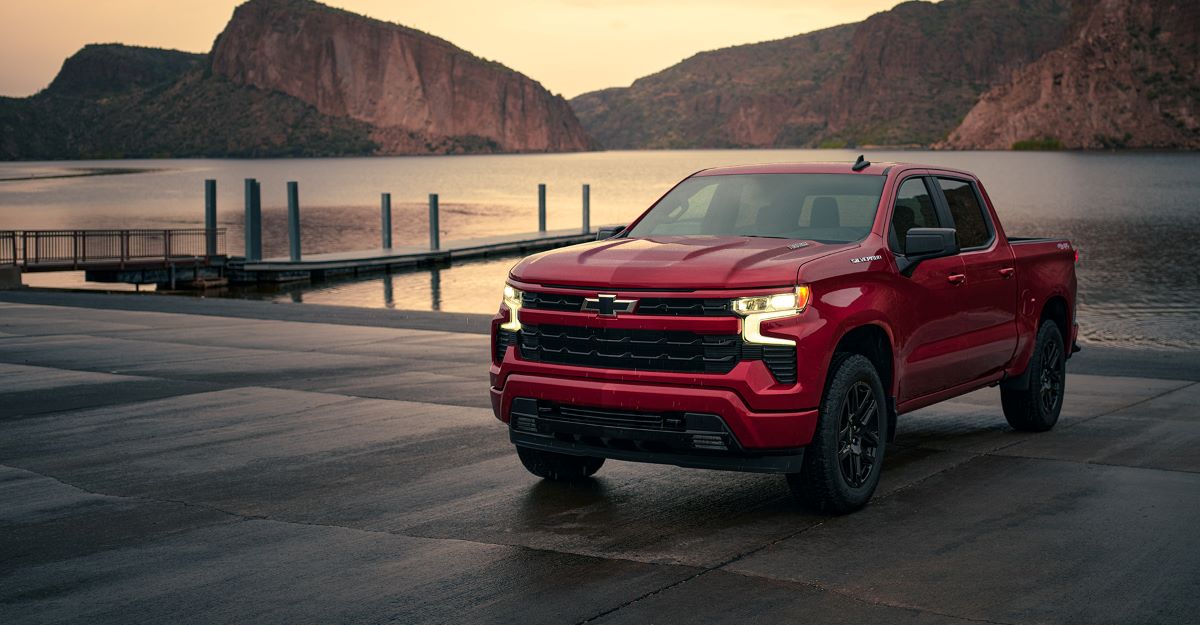
Chevrolet’s widespread dealer network and parts availability further contribute to the Silverado’s value retention. Easy access to service and replacement parts minimizes downtime and repair costs, factors highly valued by rural truck owners who rely on their vehicles for work.
Additionally, the Silverado offers a spacious and comfortable interior, making long workdays more manageable. Modern tech features and safety options have been integrated into recent models, enhancing usability without sacrificing ruggedness.
Brand loyalty also helps the Silverado maintain strong resale values. Chevrolet has a long-standing reputation among rural buyers for producing tough, reliable trucks that hold their value.
This reputation, combined with solid performance and practical features, ensures the Silverado 1500 remains a top pick for those looking for a pickup that retains worth in rural markets.
4. Ram 1500
The Ram 1500 has earned a strong following in rural markets due to its impressive combination of capability, comfort, and durability.
Known for its smooth ride and powerful engine options, the Ram 1500 holds value well among rural buyers who need a reliable truck for both work and everyday use.
Under the hood, the Ram 1500 offers several engine choices, including the fuel-efficient EcoDiesel V6 and the robust HEMI V8, which provide excellent towing and payload capacities.
These engines have proven to be reliable over long periods, making the truck a dependable workhorse on farms and job sites. The EcoDiesel variant, in particular, appeals to rural users looking to balance power with fuel economy during heavy use.
The Ram’s body-on-frame construction and advanced suspension system allow it to tackle rough roads and off-road conditions common in rural areas. This durability ensures it can handle demanding workloads, from hauling equipment to navigating uneven terrain without frequent breakdowns.
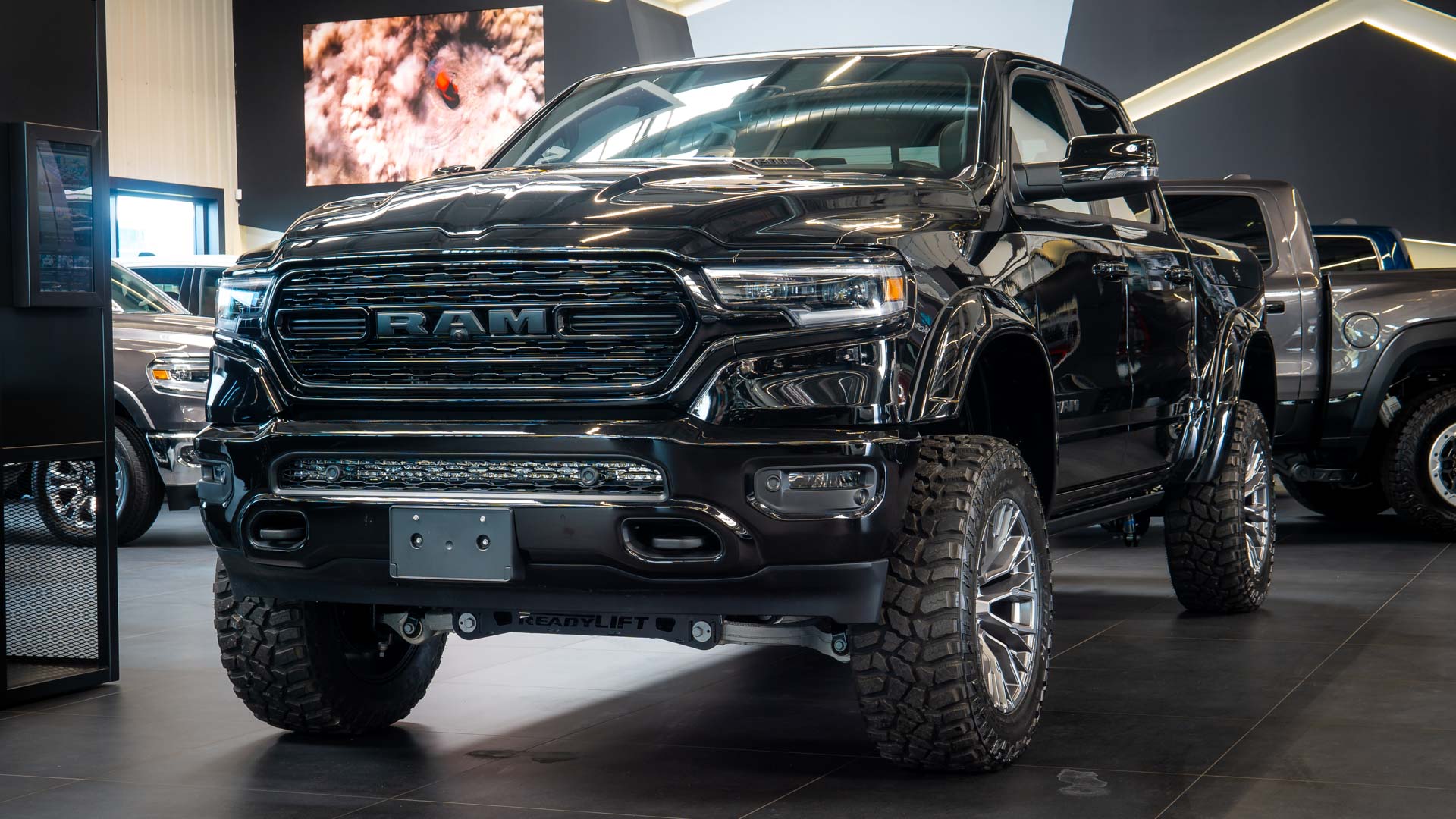
One factor that boosts the Ram 1500’s value retention is its comfortable and well-appointed interior, which stands out in the full-size pickup segment.
Features like spacious seating, user-friendly infotainment, and driver-assistance technologies make it a practical choice for long workdays and daily driving alike.
Ram’s growing dealer network and parts availability further support maintenance and repair, crucial for rural owners who cannot afford extended vehicle downtime.
Brand reputation plays a significant role too—Ram trucks are increasingly recognized for their blend of rugged capability and refined features, which helps maintain strong resale demand in rural markets.
Overall, the Ram 1500’s balance of power, comfort, and durability makes it a smart investment for rural buyers seeking a pickup truck that holds its value over time.
5. Toyota Tundra
The Toyota Tundra is a full-size pickup that has built a loyal following in rural markets due to its reputation for durability, reliability, and strong resale value.
While it may not have the same sales volume as some domestic rivals, the Tundra’s proven mechanical toughness makes it a favorite among rural buyers who prioritize long-term ownership.
Powered primarily by reliable V8 engines, the Tundra offers solid towing and hauling capabilities suited for heavy-duty rural tasks such as hauling trailers, livestock, or farming equipment.
Its robust construction and rugged frame are built to endure harsh conditions, including rough terrain and extreme weather, which are common in rural environments.
One major factor contributing to the Tundra’s value retention is Toyota’s legendary reputation for reliability.
Many owners report Tundras that easily surpass 200,000 to 300,000 miles with regular maintenance and few major repairs. This reputation not only builds trust but also drives high demand in rural resale markets where durability is paramount.
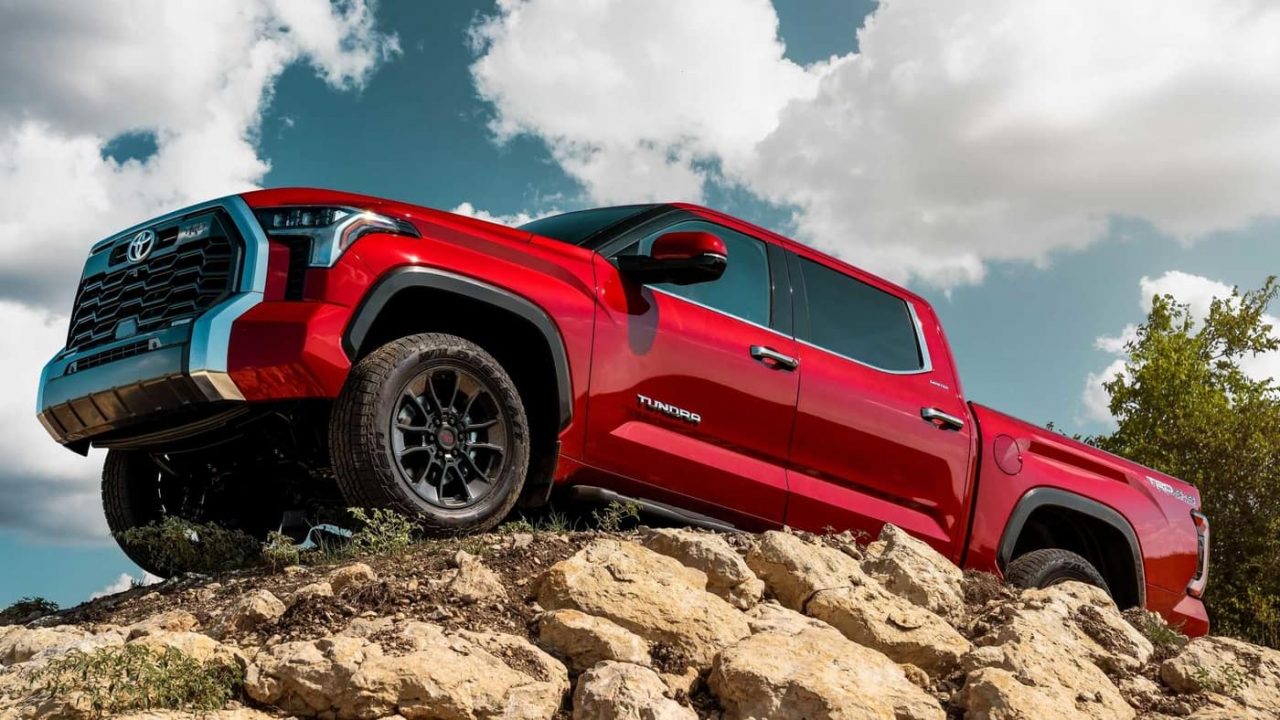
Toyota’s wide parts availability and service network further enhance the Tundra’s appeal in rural areas, ensuring repairs and maintenance are straightforward and relatively affordable.
This accessibility minimizes downtime and keeps operating costs manageable, an important consideration for rural truck owners who depend heavily on their vehicles.
Although the Tundra’s design hasn’t changed drastically in recent years compared to competitors, it continues to offer solid performance, straightforward mechanics, and a no-nonsense approach that appeals to rural users.
The truck’s value retention reflects this practical approach, with strong resale prices maintained due to reliability and brand loyalty.
In conclusion, the Toyota Tundra remains a top choice for rural buyers seeking a dependable, long-lasting full-size pickup that holds value well, even after years of hard use.
5 Pickup Trucks That Don’t Hold Value in Rural Markets
While some pickup trucks maintain their value strongly in rural markets, others depreciate rapidly due to various factors that make them less appealing to rural buyers.
These trucks often struggle with reliability issues, high maintenance costs, limited parts availability, or lack the ruggedness necessary for demanding rural work. In addition, some models may have design flaws or weak resale demand, which leads to steep value drops over time.
In rural environments, pickup trucks need to be more than just stylish or feature-rich; they must be tough, dependable, and cost-effective to maintain. When trucks fall short in any of these areas, they quickly lose their appeal and market value.
For rural buyers who rely on their pickups for everyday heavy-duty tasks, choosing a model prone to rapid depreciation can translate into expensive ownership and difficulty selling or trading in the future.
This section explores five pickup trucks that, despite their popularity in some circles, fail to hold their value well in rural markets.
These trucks face challenges ranging from mechanical issues to poor brand perception or simply not meeting the rugged requirements rural buyers demand. Understanding why these models depreciate more sharply will help rural consumers avoid costly mistakes and make more informed purchasing decisions.
By highlighting these five trucks, this guide aims to shed light on common pitfalls in pickup ownership in rural areas.
Whether due to mechanical shortcomings, design trade-offs, or poor resale demand, these pickups are generally not the best choices for those who need a durable, reliable work vehicle with strong value retention. Avoiding these trucks can save rural buyers from steep financial losses and frustration down the road.
1. Nissan Frontier
The Nissan Frontier, once a popular choice in the midsize pickup segment, has struggled to maintain its value in rural markets in recent years.
Although known for its initial affordability and decent off-road capabilities, the Frontier’s aging design and mechanical limitations have contributed to its steep depreciation in rural resale markets.
One major factor affecting the Frontier’s value retention is its outdated platform. While competitors have updated their models with more modern engines, improved fuel efficiency, and enhanced comfort features, the Frontier largely remained unchanged for a prolonged period.
This lack of modernization has made it less attractive to rural buyers seeking trucks that can handle evolving work demands and provide up-to-date reliability.
Reliability, while generally decent, has been inconsistent in some older Frontier models, with reports of premature transmission and suspension issues surfacing over time.
In rural areas, where trucks must endure rough roads and heavy loads, these mechanical concerns negatively impact the Frontier’s desirability and resale value.
Additionally, Nissan’s limited dealer network and parts availability in some rural regions can lead to longer downtimes and higher repair costs, further discouraging buyers from investing in used Frontiers. The truck’s modest towing and payload ratings also put it at a disadvantage compared to better-equipped rivals favored by rural owners.
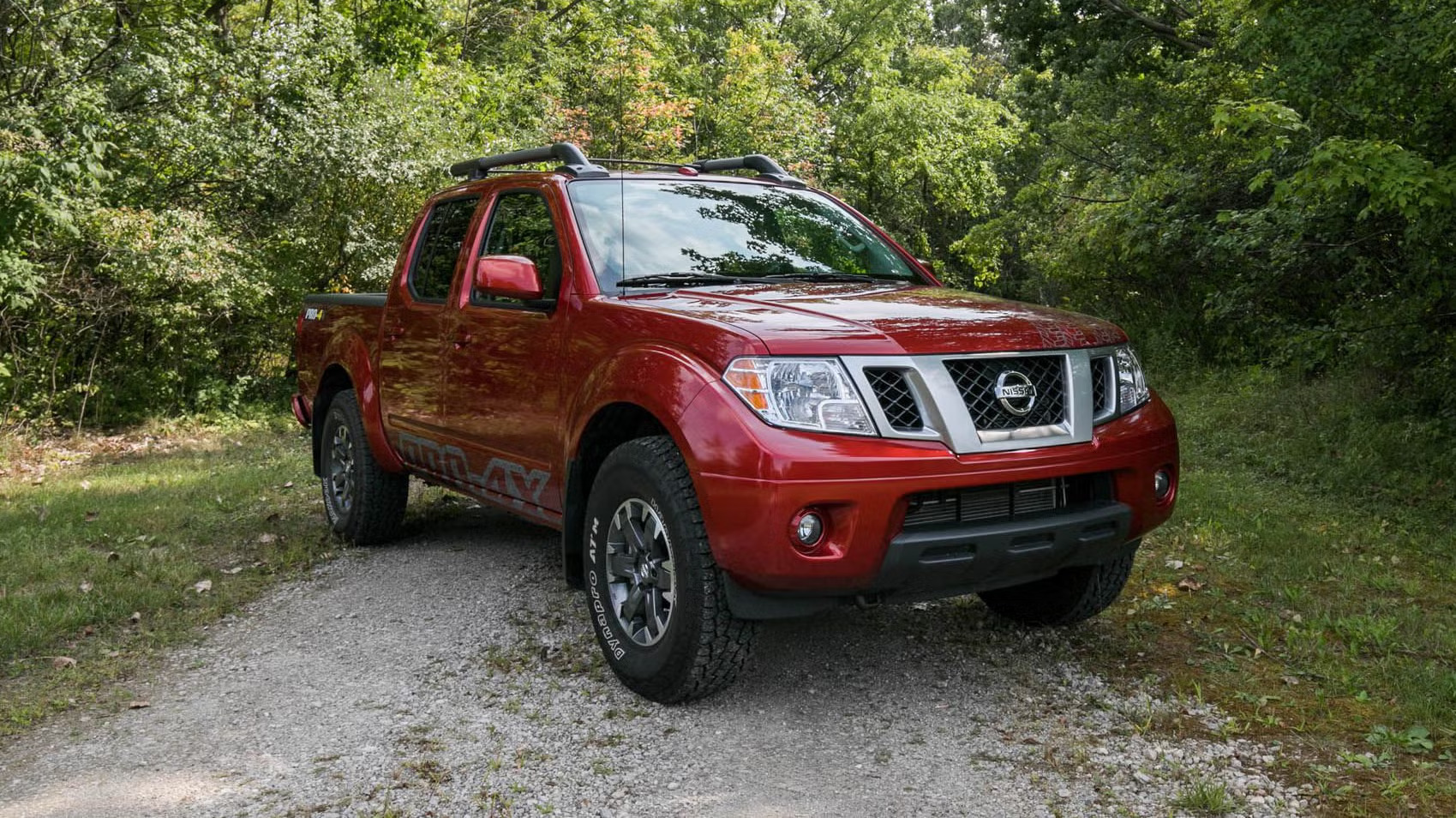
Brand perception plays a role as well; Nissan pickups don’t carry the same rugged reputation that American or Toyota trucks enjoy in rural communities, which drives demand and resale prices down.
Ultimately, while the Nissan Frontier may appeal to budget-conscious buyers, its outdated design, mixed reliability record, and weaker brand loyalty result in significant depreciation in rural markets. For buyers prioritizing strong value retention and proven toughness, the Frontier often falls short.
2. GMC Canyon
The GMC Canyon, a midsize pickup, often shares platforms with the Chevrolet Colorado but struggles more with value retention in rural markets.
While it offers a comfortable ride and decent capability, several factors contribute to its rapid depreciation in rural areas where ruggedness and long-term durability are top priorities.
One key issue is that the Canyon’s premium positioning and higher initial price do not always translate into better resale value.
Rural buyers tend to prioritize trucks that can take a beating without costly repairs, and the Canyon’s more upscale features and electronics sometimes mean increased maintenance expenses. This can make it less attractive to rural buyers focused on simplicity and reliability.
Mechanically, the Canyon has had some reports of transmission issues and electrical glitches, especially in older model years. These concerns weigh heavily in rural settings, where a pickup must withstand continuous use under tough conditions. Frequent repairs or complex electronics can translate to inconvenient downtime and higher out-of-pocket costs.
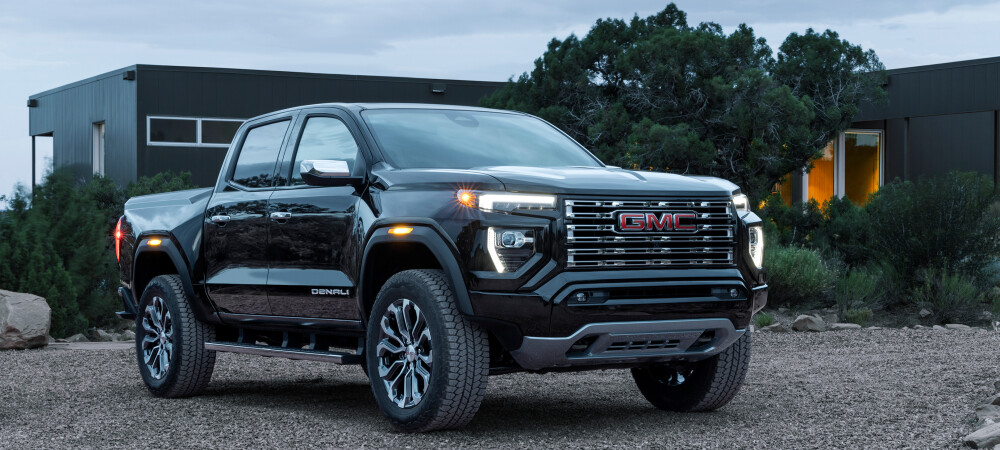
Furthermore, the GMC brand, while recognized, does not have the same level of loyalty or rugged image in rural communities as brands like Ford or Ram. This perception contributes to weaker demand in used rural truck markets, which accelerates depreciation.
The Canyon’s towing and payload capabilities, while competitive in urban or suburban contexts, can feel limiting for rural buyers needing maximum utility.
In comparison to full-size trucks or even more rugged midsize competitors, the Canyon is sometimes viewed as less suited for heavy-duty rural work.
Lastly, the availability of parts and service for GMC trucks in remote rural areas can be patchy, leading to extended repair times and higher costs.
These factors all combine to make the GMC Canyon one of the pickups that loses value more quickly in rural markets, making it a less ideal choice for buyers who rely heavily on their trucks for tough, everyday tasks.
3. Honda Ridgeline
The Honda Ridgeline is a unique midsize pickup known for its car-like ride quality and innovative features.
However, despite these positives, the Ridgeline does not hold value well in rural markets, where ruggedness, durability, and proven work capability are prioritized over comfort and refinement.
One of the main reasons for the Ridgeline’s rapid depreciation in rural areas is its unibody construction, which differs from the traditional body-on-frame design favored by most trucks.
While the unibody frame enhances ride comfort and handling, it compromises the heavy-duty durability and off-road toughness rural buyers expect. This limits the Ridgeline’s appeal among farmers, ranchers, and tradespeople who need a truck that can endure rough terrain and heavy payloads.
The Ridgeline’s towing and payload capacities, though adequate for urban or light-duty tasks, fall short compared to competitors with more rugged builds. For rural owners who regularly haul trailers, livestock, or heavy equipment, this can be a critical disadvantage.
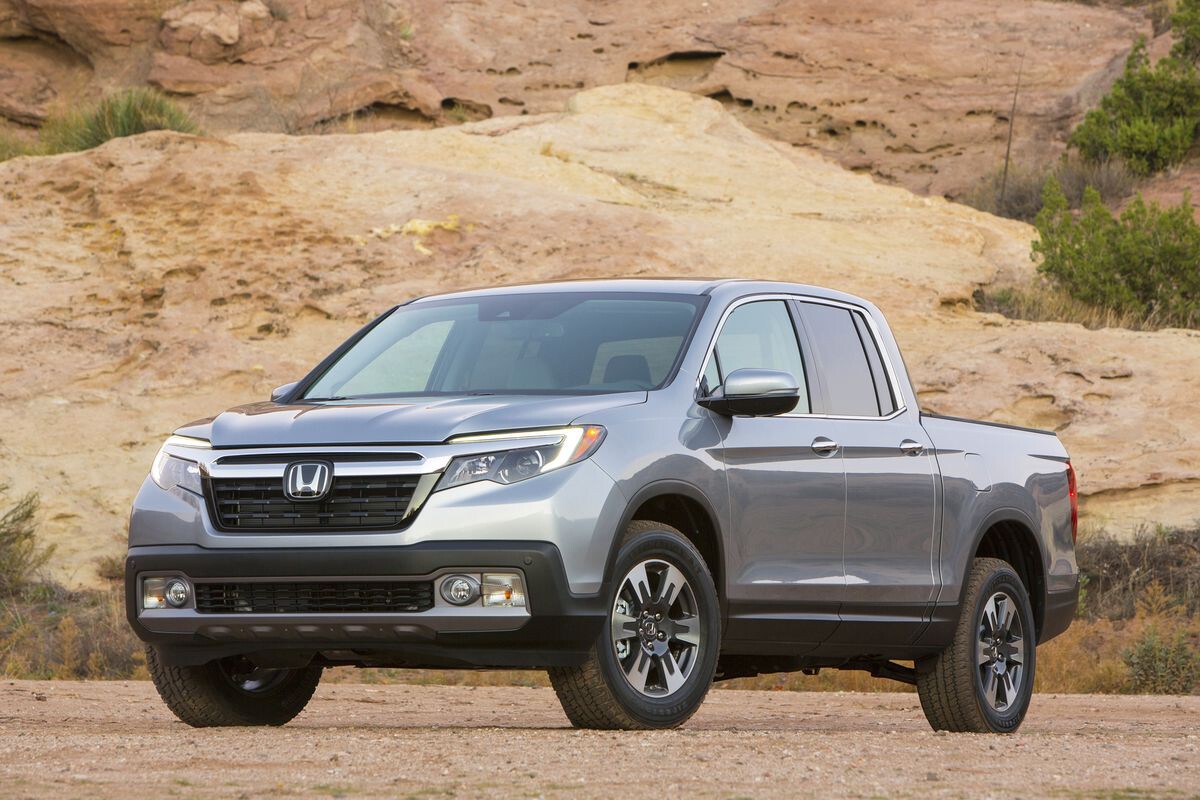
Maintenance and repair costs for the Ridgeline can also be higher due to its more complex chassis and unique design.
Additionally, its market positioning as a lifestyle or recreational truck reduces demand in the rural resale market, where trucks are viewed more as essential work tools rather than lifestyle vehicles.
Brand perception also plays a role. Honda is widely respected for cars and SUVs, but its pickup lacks the same rugged image that domestic and Toyota trucks have cultivated over decades in rural markets. This perception gap results in lower demand and faster depreciation in rural used truck sales.
In summary, while the Honda Ridgeline offers comfort and innovative features, its design and capability limitations make it less desirable for rural buyers who rely on toughness and utility. Consequently, it depreciates more rapidly and holds less value in rural markets.
4. Ford Ranger (Recent Models)
The recent generation of the Ford Ranger, reintroduced to the U.S. market in 2019, has struggled to maintain strong value retention in many rural markets despite its popularity in urban and suburban areas.
While the Ranger offers modern styling, advanced technology, and respectable capability, several factors limit its appeal and resale value among rural buyers.
One significant factor is that the Ranger is a midsize truck with lower towing and payload capacities compared to full-size trucks, which remain the go-to choice for many rural buyers needing maximum utility.
This limitation makes it less attractive for heavy-duty work such as hauling large trailers, farm equipment, or livestock, tasks commonly encountered in rural settings.
Additionally, the Ranger’s newer technology and sophisticated electronics, though beneficial for comfort and safety, can translate into increased maintenance and repair costs over time.
In rural areas where access to specialized service may be limited, this complexity is often seen as a disadvantage. Rural buyers typically favor trucks that are straightforward to maintain and repair, minimizing downtime and costs.
Ford’s reputation for toughness in rural markets is more strongly tied to its F-Series full-size trucks than the midsize Ranger. This perception affects resale demand, as rural buyers often gravitate toward well-established workhorses with proven track records.
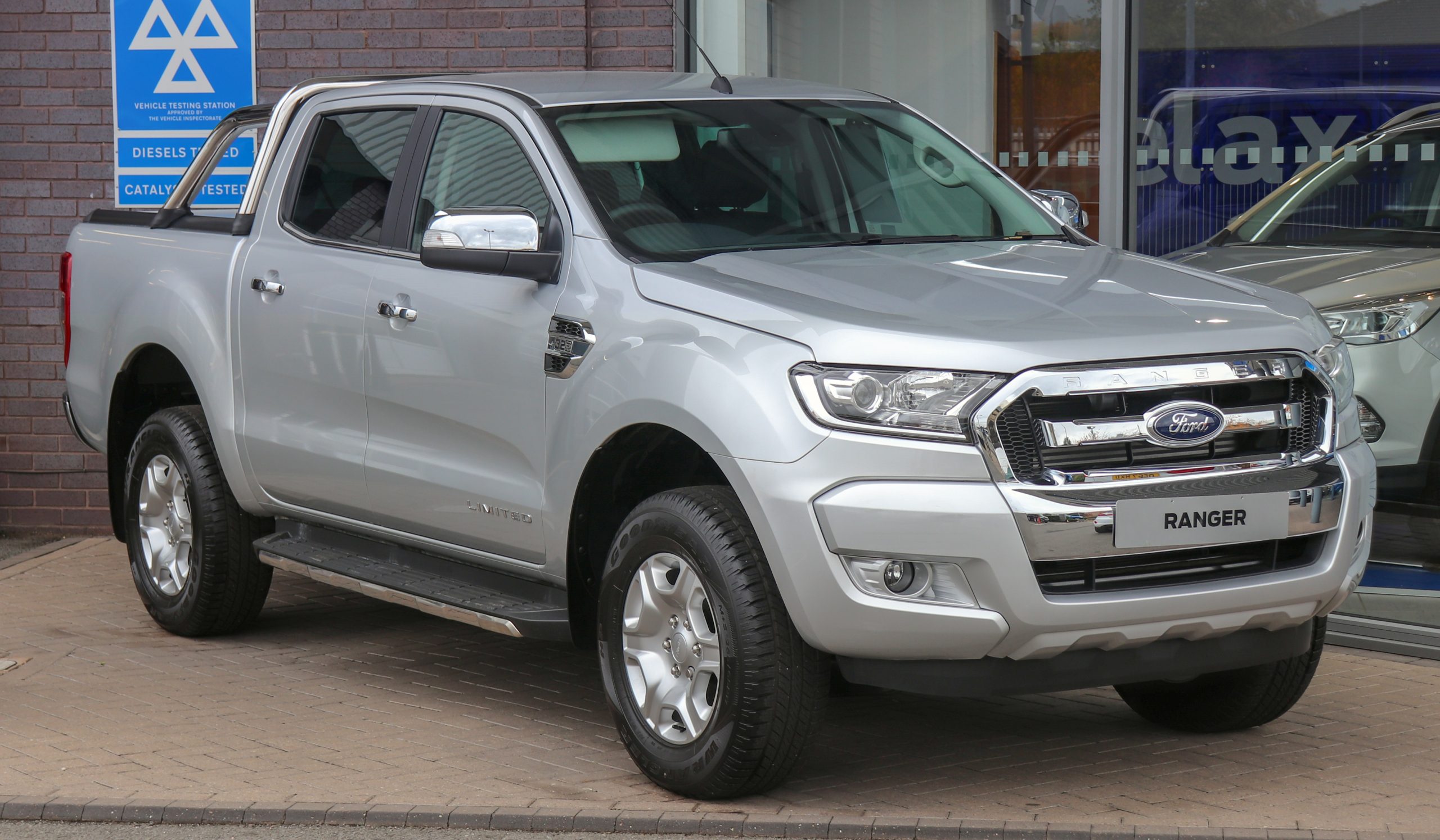
Furthermore, while the Ranger’s ride and handling are praised, its off-road and rugged-use capabilities do not always match up to more heavy-duty rivals or older, proven models.
This makes it less suitable for rough terrain or intensive farm work, further impacting its desirability in rural communities.
As a result, despite its strengths in other segments, the Ford Ranger’s combination of midsize limitations, complexity, and brand perception issues contribute to quicker depreciation in rural markets. It often falls short of retaining value compared to larger, more rugged pickups favored in these areas.
5. Hyundai Santa Cruz
The Hyundai Santa Cruz is one of the newest entries in the pickup market, offering a crossover-truck hybrid design that targets urban drivers looking for versatility and style.
However, this very approach makes the Santa Cruz a poor fit for rural markets, where it depreciates quickly due to several mismatches with buyer expectations and use cases.
First and foremost, the Santa Cruz is built on a unibody platform shared with the Hyundai Tucson SUV.
While this gives it a smooth ride and efficient handling for city driving, it significantly reduces its structural strength and off-road durability — two characteristics that rural buyers value highly.
The result is a truck that doesn’t inspire confidence when subjected to demanding tasks like hauling heavy loads, towing farm equipment, or navigating rough rural terrain.
Its payload and towing capacities also fall well below what rural users typically require. With a max towing capacity of around 5,000 pounds when properly equipped — and less in base trims — it can’t compete with traditional body-on-frame trucks like the Ford F-150 or Ram 1500, even when compared to midsize pickups.
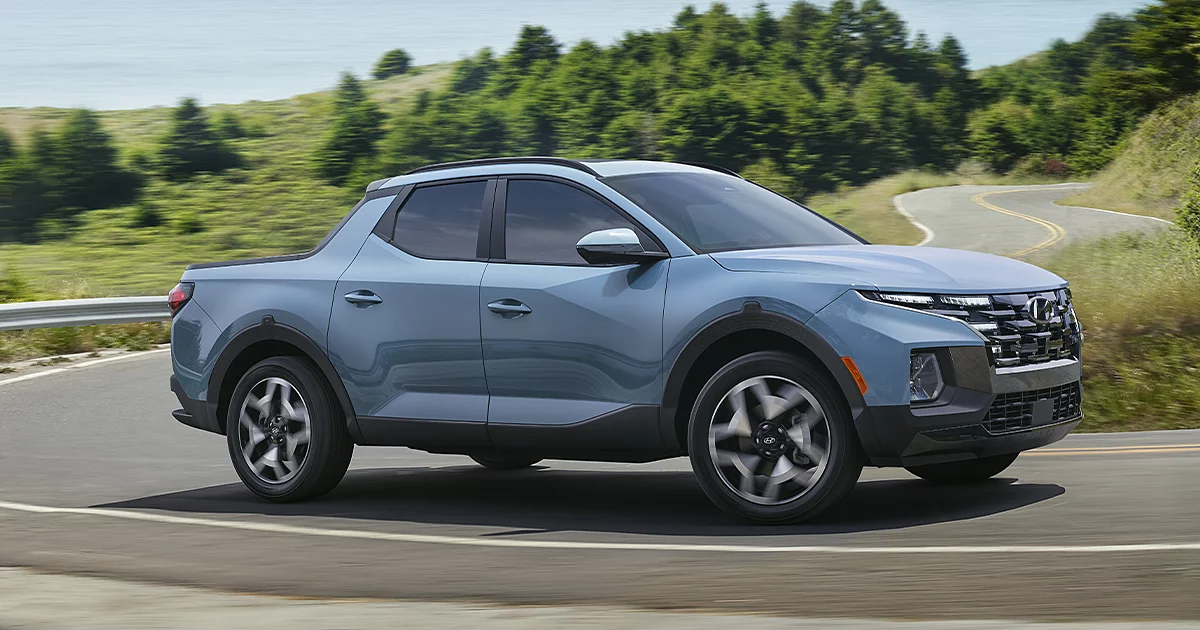
Another issue is perception. Many rural buyers still view the Santa Cruz as more of a novelty or lifestyle vehicle than a workhorse.
Its bold styling, small cargo bed, and lack of rugged trim options make it less appealing to those who need a truck for actual labor rather than weekend recreation. This perception leads to weak resale demand in rural markets, directly impacting value retention.
Parts availability and servicing can also be more limited in rural areas compared to domestically produced trucks. For owners far from a Hyundai dealer, even minor repairs may require longer wait times and higher costs, discouraging ownership in these regions.
In conclusion, the Hyundai Santa Cruz might be practical in urban environments, but its light-duty capabilities, limited utility, and poor brand familiarity in the truck space make it depreciate rapidly in rural markets.
When it comes to value retention in rural markets, not all pickup trucks are created equal. The factors that influence a truck’s resale value in these areas go far beyond name recognition or base price.
Instead, rural buyers prioritize long-term reliability, rugged build quality, accessible maintenance, and practical utility over flashy features or futuristic designs.
Trucks that consistently deliver on these fronts are the ones that hold their value, even after years of hard work on farms, job sites, and back roads.
Vehicles like the Toyota Tacoma, Ford F-150, and Ram 1500 earn their spots on the “hold value” list because they offer a proven blend of durability, aftermarket support, and powertrain strength.
These trucks are trusted to start every morning and deliver when it counts, making them a staple of resale demand in rural areas where downtime isn’t an option.
Their reputations for handling high mileage with minimal issues make them more than just practical—they become long-term investments.
On the flip side, pickups that fail to meet rural needs tend to lose value quickly. Whether it’s due to limited towing capacity, complex repair needs, or poor parts availability, trucks like the Hyundai Santa Cruz and GMC Canyon simply don’t resonate with rural buyers.
These vehicles may thrive in suburban or city environments, but when judged by the standards of daily use in harsh, utilitarian settings, they fall short.
Another key takeaway is the importance of trim and configuration. A base model of a high-value truck may retain its worth better than a fully loaded version of a truck with poor reliability. Additionally, vehicles designed with true work-ready capability—like strong frames, durable drivetrains, and dependable electronics—command loyalty and higher resale pricing.
Ultimately, rural truck buyers are some of the most discerning in the market. Their purchase decisions are based on real-world needs, not advertising hype.
This makes rural resale value a powerful indicator of a pickup’s true worth. If a truck holds up to the demands of rural life and still garners strong resale offers, it’s not just a vehicle—it’s a tool worth keeping.
Also Read: 5 Cars With No Hidden Repair Costs and 5 With Expensive Surprise Fixes

